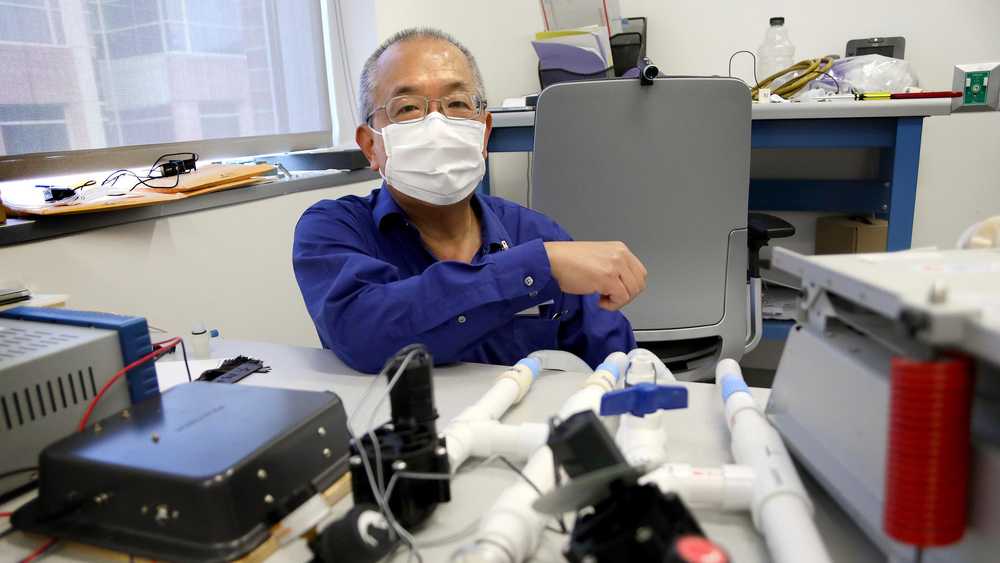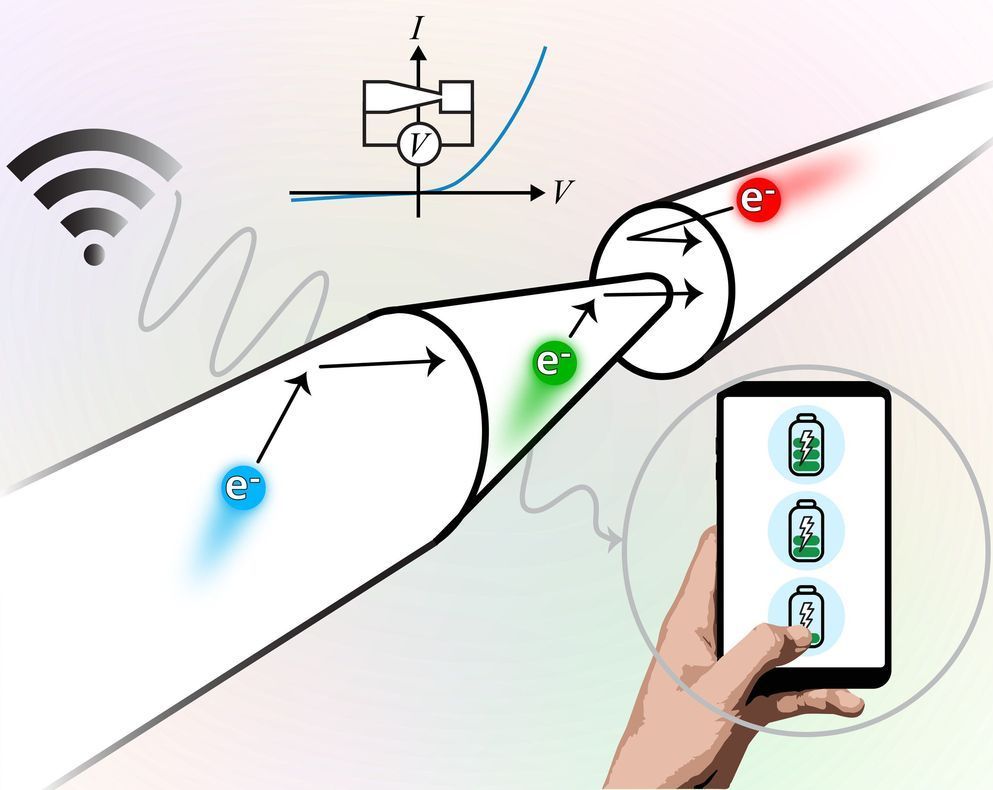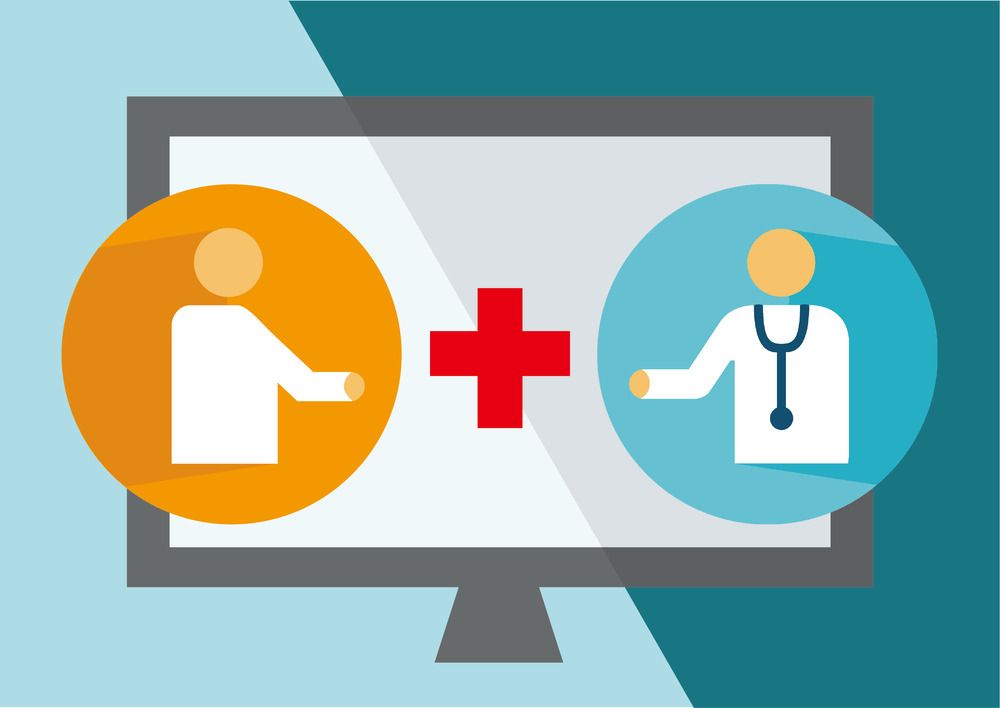Around a year ago…
Pretty cool.
In the past several months, China has offered several remote surgery demonstrations using 5G. The technologies promise better care over a wider area.
Around a year ago…
Pretty cool.
In the past several months, China has offered several remote surgery demonstrations using 5G. The technologies promise better care over a wider area.

A team of University of Florida engineers developed a cheap and easily sourced ventilator made with PVC, sprinkler valves, and Arduino. The design can be made for around $125 and could help with the demand for ventilators in the COVID-19 pandemic.
A ventilator envisioned by a University of Florida engineer and built with do-it-yourself parts gained first-step FDA authorization this week, offering hope that it could be in use within weeks at hospitals around the world where COVID-19 patients have overwhelmed supplies of traditional medical equipment.
The ventilator, composed of parts readily available for less than $250, can be assembled in less than an hour. UF has made plans and software available free over the internet.
“The testing is obviously important right now because the worst-case scenario is that a patient will need three weeks of ventilator support, so we want to make sure this will run non-stop for three weeks,” said Samsun Lampotang, a professor of anesthesiology in the UF College of Medicine, who led design of the device.

Researchers at the University of North Carolina at Chapel Hill made a one-way street for electrons that may unlock the ability for devices to process ultra-high-speed wireless data and simultaneously harvest energy for power. The researchers did this by shaping silicon on a microscopic scale to create a funnel, or “ratchet,” for electrons.
This method overcomes the speed limitations of prior technologies by removing interfaces that tend to slow down devices.” This work is exciting because it could enable a future where things like low-power smartwatches are wirelessly charged from the data they already receive without ever needing to a leave a person’s wrist,” said James Custer Jr., a doctoral student in UNC-Chapel Hill’s College of Arts & Sciences.
The findings were published April 10 in the journal Science. Custer is lead author. He worked with collaborators at Duke and Vanderbilt universities.

Google Chrome has dominated the internet browser market for the last decade with a staggering near-60% market share and users stretching into the billions.
Rivals to Google Chrome, including Apple’s Safari, Microsoft’s Edge (formerly known as Internet Explorer), and Mozilla’s Firefox have largely failed to convince users to switch—but browser choices are becoming more complex.
Users’ desire for greater security, better privacy, and an ill-defined need to “take back control” from the likes of Google and Microsoft has opened the door for alternatives—including blockchain-based privacy browser Brave, whose chief executive thinks Google “is going to be taken apart over coming years.”


China has officially begun the research and development of 6G technology.
The news came less than a week after the country rolled out its superfast 5G network.
The country’s Technology Bureau has formally set up a team of experts to work on the next-generation mobile internet connection, state media said today.

#Technology in #medicine: What will the #future #healthcare be like? https://www.neurozo-innovation.com/post/future-health Technologies have made many great impacts on our medical system in recent years. The article will first give a thorough summarization of them, and then the expectations and potential problems regarding future healthcare will be discussed. #AI #5G #VR #AR #MR #3DPrinting #BrainComputerInterface #telemedicine #nanotechnology #drones #SelfDriving #blockchain #robotics #innovation #trend
Technology has many beneficial effects on modern people’s lives, and one of them is to prolong our lifespan through advancing the medical field. In the past few years, new techniques such as artificial intelligence, robots, wearable tech, and so on have been used to improve the quality of our healthcare system, and some even newer innovations such as flying vehicles and brain computer interface are also considered valuable to the field. In this article, we will first give a thorough discussion about how these new technologies will shape our future healthcare, and then some upcoming problems that we may soon face will be addressed.


The US is well behind China on this front, though. A team led by quantum supremo Jian-Wei Pan have already demonstrated a host of breakthroughs in transmitting quantum signals to satellites, most recently developing a mobile quantum satellite station.
The reason both countries are rushing to develop the technology is that it could provide an ultra-secure communication channel in an era where cyberwarfare is becoming increasingly common.
I t’s essentially impossible to eavesdrop on a quantum conversation. The strange rules of quantum mechanics mean that measuring a quantum state immediately changes it, so any message encoded in quantum states will be corrupted if someone tries to intercept it.

Under DARPA’s Photonics in the Package for Extreme Scalability (PIPES) program, researchers from Intel and Ayar Labs have demonstrated early progress towards improving chip connectivity with photons – or light. Signaling over optical fibers enables the internet today and optical transceivers are ubiquitous in data centers, yet digital systems still rely upon the movement of electrons over metal wires to push data between integrated circuits (ICs) on a board. Increasingly, the limitations of electrical signaling from the chip package restrict overall bandwidth and signaling efficiency, throttling the performance of advanced systems. The PIPES program is exploring ways to expand the use of optical components to address these constraints and enable digital microelectronics with new levels of performance.
Researchers from Intel and Ayar Labs working on PIPES have successfully replaced the traditional electrical input/output (I/O) of a state-of-the-art field programmable gate array (FPGA) with efficient optical signaling interfaces. The demonstration leverages an optical interface developed by Ayar Labs called TeraPHY, an optical I/O chiplet that replaces electrical serializer/deserializer (SERDES) chiplets. These SERDES chiplets traditionally compensate for limited I/O when there is a need for fast data movement, enabling high-speed communications and other capabilities. Using Intel’s advanced packaging and interconnect technology, the team integrated TeraPHY and the Intel FPGA core within a single package, creating a multi-chip module (MCM) with in-package optics. The integrated solution substantially improves interconnect reach, efficiency, and latency – enabling high-speed data links with single mode optical fibers coming directly from the FPGA.